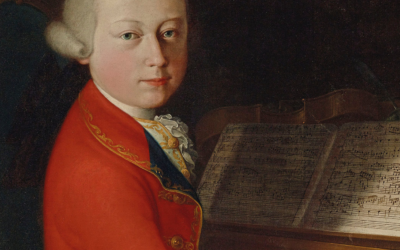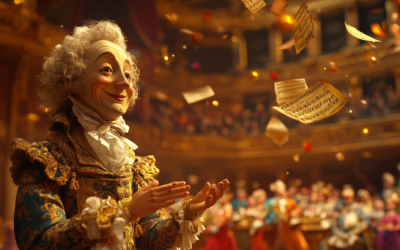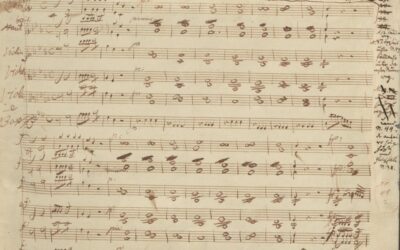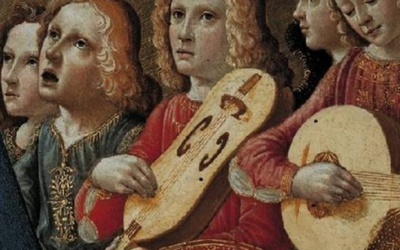The Golden Spur
A Farce of Honour in Mozart's Time
How a once prestigious title became a symbol of ridicule for Mozart and Casanova
Mozart: The Fall of the Gods
This book offers a fresh and critical look at the life of Wolfgang Amadeus Mozart, challenging the myths that have surrounded him for centuries. We strip away the romanticised image of the “natural genius” and delve into the contradictions within Mozart’s extensive biographies. Backed by nearly 2,000 meticulously sourced citations, this work invites readers to explore a deeper, more complex understanding of Mozart. Perfect for those who wish to question the traditional narrative, this biography is a must-read for serious music lovers and historians.
"It was said that anyone who wore the Speron d’Oro was considered an ass."
Mozart: The Fall of the Gods
On Saturday, 19 May 1770, Leopold wrote from Naples to his wife about the Miserere, mentioning a newspaper article that was never found again. In his letter, he reassured His Grace, the Prince of Salzburg, that Wolfgang would soon receive a great honour.
Leopold and Wolfgang arrived in Rome on Tuesday, 26 June, and that very day, Cardinal Andrea Negroni, responsible for the Vatican Secretariat of Briefs, was tasked with registering the conferment of the Speron d’Oro to Wolfgang, enrolling him in the Order of the Militia Aurata.
However, it was not the Pope who personally granted him the title, as some accounts would later falsely claim, but rather Cardinal Pallavicini, possibly due to Leopold’s insistence or pressure from the Pallavicini family of Bologna, who had close ties with Austria.
The awarding of the Speron d’Oro to Mozart was not the result of any extraordinary musical achievement, such as the apocryphal story of the transcription of Allegri’s Miserere. It was a simple matter of networking and pressure applied on the Vatican. This honour, which Leopold proclaimed proudly as a great fortune, was by then more of a farce than a genuine mark of distinction. By Mozart’s time, the Speron d’Oro had lost all its former value. It had become a mere trinket, almost laughable, and often mocked. The title was no longer an indication of merit, but rather something that could be obtained through money or influence.
The same Speron d’Oro was given to none other than the notorious Casanova.
“Reverend Father,” Casanova wrote in his Memoirs, ‘at the home of Abbot Momolo, most holy fucker, I saw a young woman named Maria, of whom you are the confessor. I have fallen in love with her, and in an attempt to seduce her, I want to offer her money. Here is the sum for the good girl, Reverend Father.’ I was sitting at the table with Mengs when a messenger from the Holy Father arrived. He asked Mr Mengs if I lived there, and after the gentleman pointed me out, he handed me, on behalf of the Holy Father, the cross of the Order of the Golden Spur, along with the diploma and the patent bearing the papal seal.”
Casanova, like Mozart, initially felt proud of the honour. In fact, Casanova explains in his Memoirs that the medal was no longer a symbol of genuine merit but more an object of ridicule. He recalls being advised in Russia to remove the medal from his neck to avoid being laughed at. Similarly, Leopold had pressured his son to wear the cross and sign his compositions as “Knight W. A. Mozart.” However, Wolfgang, much like Casanova, soon came to realise that the title had lost its lustre. He was ridiculed and mocked, as he himself wrote in a letter. Over time, he discarded the title entirely, considering it more a burden than a badge of distinction.
Receiving the Speron d’Oro was not a reflection of Mozart’s genius. It was no longer an honour that musicians aspired to, unlike Gluck, who had received it at a time when it still held some value. By Mozart’s time, the award had become so devalued that many, like Casanova, believed it was better not to receive it at all. In fact, it was said that anyone who wore it was considered an ass.
As time passed, Mozart distanced himself from the Speron d’Oro, recognising, like Casanova, that it was nothing more than an empty gesture. The title, which could easily be purchased, became so devalued that by 1841, Pope Gregory XVI reformed the Order entirely, replacing it with the Order of St Sylvester.
You May Also Like
Rediscovering Musical Roots: The World Premiere of Gasparini and Mysliveček
This December, history will come alive as the Camerata Rousseau unveils forgotten treasures by Quirino Gasparini and Josef Mysliveček. These premieres not only celebrate their artistry but also reveal the untold influence of Gasparini on Mozart’s Mitridate re di Ponto. A pivotal event for anyone passionate about rediscovering music history.
The Curious Case of Mozart’s Phantom Sonata
In a striking case of artistic misattribution, the Musikwissenschaft has rediscovered Mozart through a portrait, attributing a dubious composition to him based solely on a score’s presence. One has to wonder: is this music really Mozart’s, or just a figment of our collective imagination?
The Illusion of Canonic Mastery
This post explores the simplistic nature of Mozart’s Kyrie K.89, revealing the truth behind his early canonic compositions and their implications on his perceived genius.
The Unveiling of Symphony K.16
The Symphony No. 1 in E-flat major, K.16, attributed to young Wolfgang Mozart, reveals the complex truth behind his early compositions. Far from the prodigious work of an eight-year-old, it is instead a product of substantial parental intervention and musical simplification.
The Cibavit eos and Mozart’s Deceptive Legacy
The Cibavit eos serves as a striking reminder that Mozart’s legacy may be built on shaky foundations, questioning the very essence of his so-called genius.
K.143: A Recitative and Aria in the Shadows of Doubt
K.143 is a prime example of how Mozart scholarship has turned uncertainty into myth. With no definitive evidence of authorship, date, or purpose, this uninspired recitative and aria in G major likely originated elsewhere. Is it time to admit this is not Mozart’s work at all?







